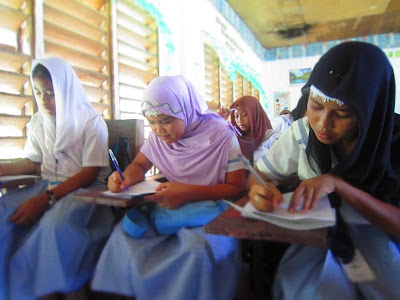MANILA, Philippines — Education is the first step to stand a chance in finding decent work in the Philippines. Unfortunately, in a country where the magnitude of the poor population is pegged at 23 million people (NSCB, 2009), most young FIlipinos do not even get close to applying for college, since many drop out from school or opt to work for a living.
A lot of young Filipinos also enter a labour market that does not have enough jobs for them. But getting a degree is still not equivalent to landing into a job. Even those with college diplomas cannot be assured of employment due to lack of opportunities and the mismatch between employees skills and those required by industry and the business sector.
Year 2011, a window of opportunity opened when a pilot project of UN Agencies, namely ILO, IOM, UNICEF, and UNFOA, supported by the Spanish Government, with the DOLE as Lead implementing Partner launched The Joint Programme on Alternatives to Migration: Decent Jobs for Filipino Youth (JP YEM).
Its aim is to increase access to decent work for disadvantaged young women and men in the country’s poorest areas, and to improve policies on youth employment and migration by encouraging the participation of all stakeholders in the process.
The programme is part of the MDG-Fund’s efforts to help governments achieve the Millennium Development Goals (MDGs), including eradicating extreme poverty and hunger, promoting gender equality and empowering women, and developing a global partnership for development. The Joint Programmes focus particularly on improving life for the world’s most marginalized people.
The Joint Programme on Alternatives to Migration: Decent Jobs for Filipino Youth (JP YEM) will culminate on Nov 23, 2012. It will serve as a platform to present the achievements of the programme; share lessons learned; ensure sustainability of the program; and acknowledge and show appreciation to key programme players and implementers. For more information about the programme, open www.dole.gov.ph.


